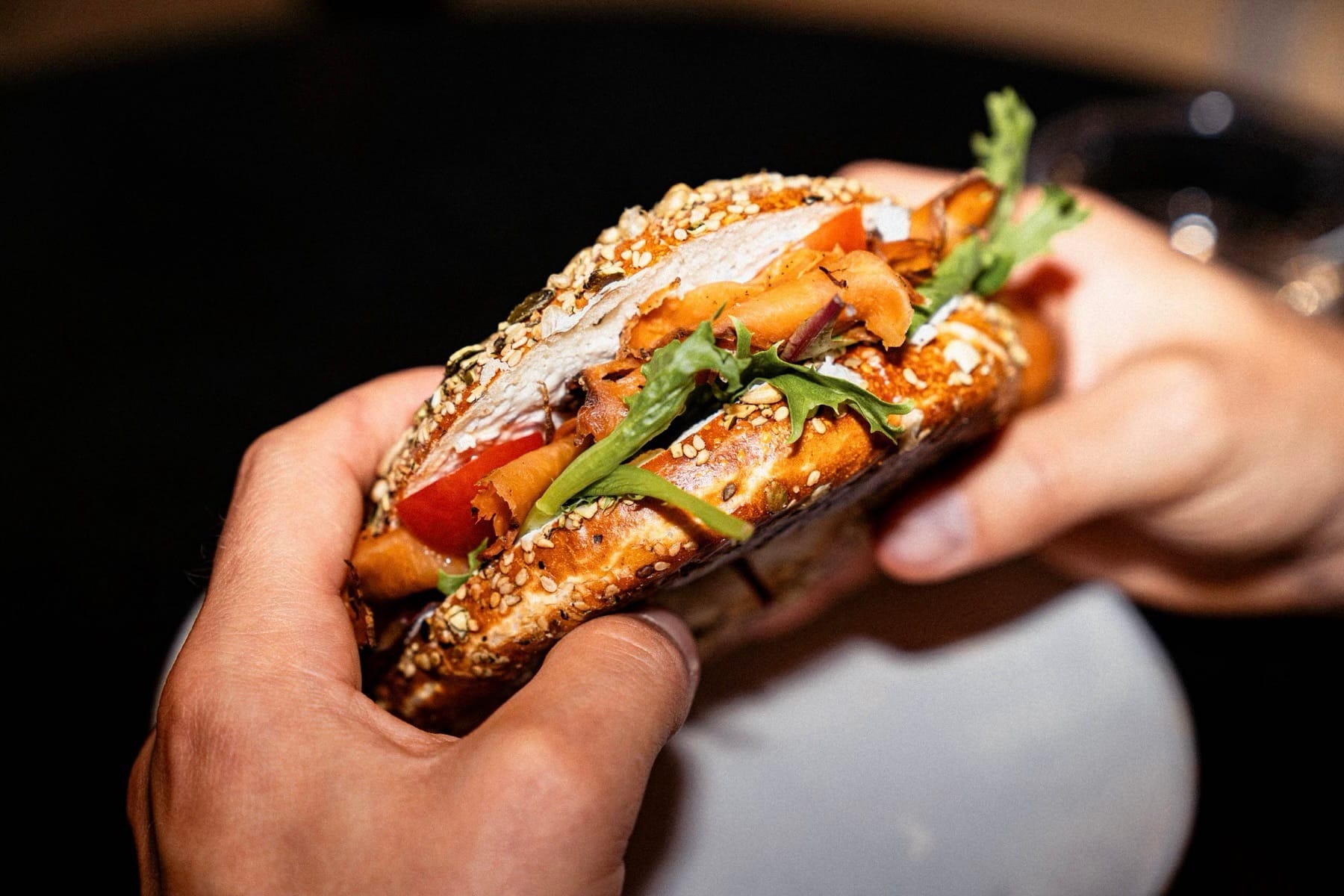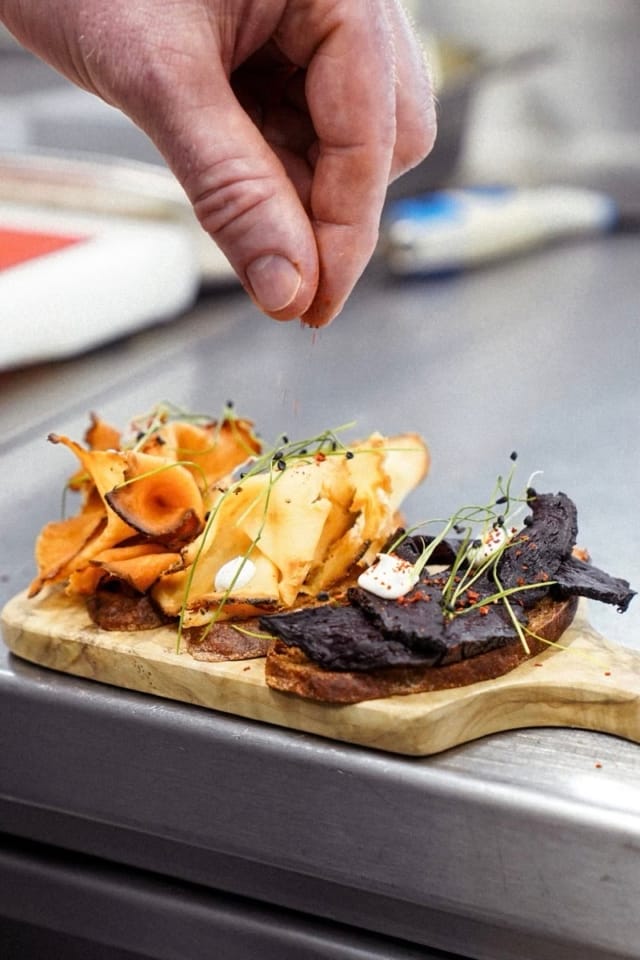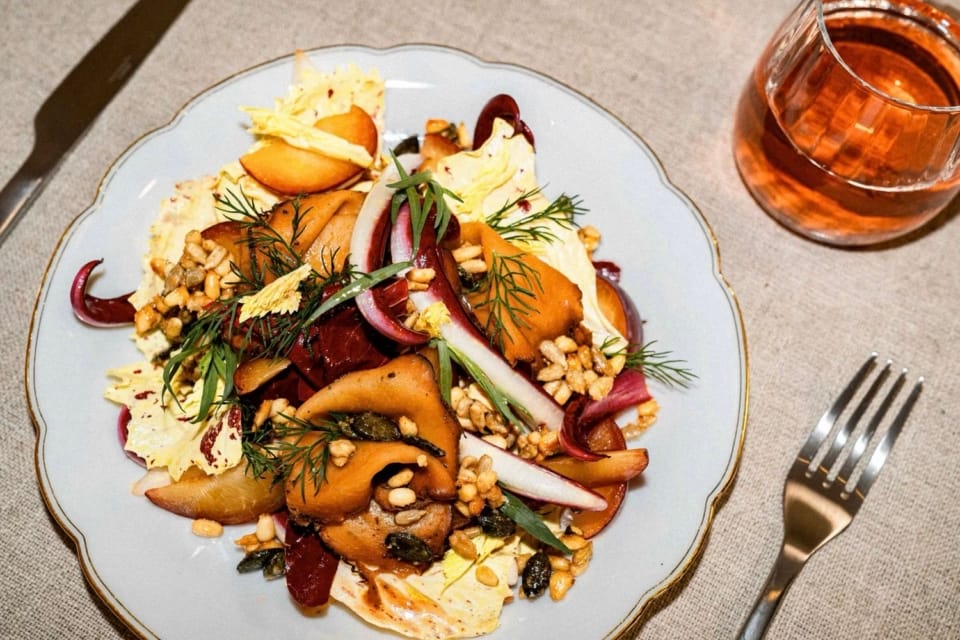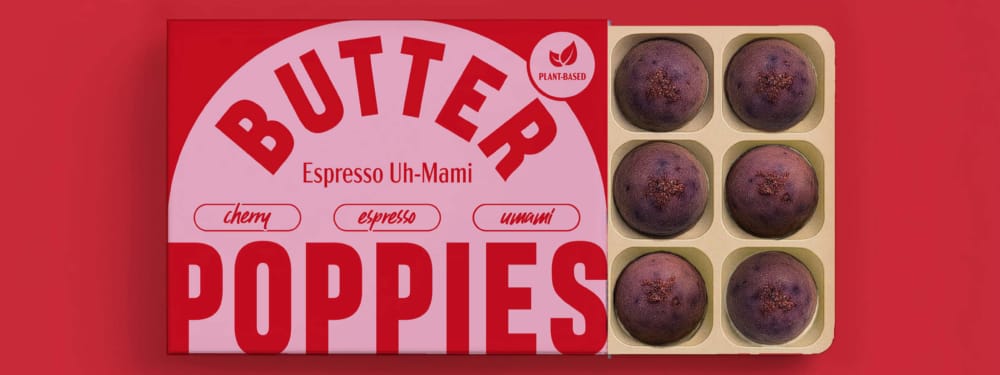From butcher to pilot plant.
Is something that sounds as cool as a Bad Bunny song, plant-based but not highly processed, too good to be true or can it work: Verrano. Three guys from Frankfurt are working on it. So that there is no more Verrano (Spanish: summer) sin Verrano.

Can from the Food Lab spoke to Manuel Siskowski – one of the three founders – and found out why Verrano is vegan “through the back door”, among other things.
To explain: Verrano has developed a process in which they smoke and dry tuber vegetables – currently celeriac, beet and swede – which gives the vegetables a new texture. They are currently sold thinly sliced.
Can: Your product is not labeled as a vegan substitute product; why this decision?
Manuel: In the beginning, we worked with the working title “vegetable ham”. People like to categorize things in familiar categories like ham, which makes it easier to understand and saves explanatory work. The category of meat substitutes has awakened the promise of equality, which has often not been kept, and has burned in the median of society. Many are skeptical because they have tried a few things and were not convinced by the taste. We have decided to avoid this pigeonhole, explain more and thus reach customers who would otherwise not try it. The lack of a vegan label at the front creates inclusivity. We put morality at the back of our minds because purchasing decisions are usually driven by taste. The biggest hurdle is the first tasting.
Tastemaker concept instead of influencer
You are practically a completely new food, how do you get people to try it?
We first go into gastronomy with a tastemaker concept. A curated menu takes the decision away from guests. After tasting, we build the bridge to private purchase and work in parallel on nationwide availability. Many customers write an email after the tasting to find out where they can buy Verrano. They then receive an email from Handelslistung. Doing too much social media now is almost damaging us, because Verrano is not yet available everywhere.

But I have already discovered you at knuspr. Do you already have a lot of repeat customers there?
Tracking is difficult via wholesalers, but we see clear repeat purchases with direct deliveries. If the catering trade, the user in the kitchen has understood the product and uses it as a problem solver for mixed groups and innovative customers use it to build something new, then the product will be understood and second, third, fourth and fifth purchases will follow.
What are the hurdles for wholesale listings and food retailers?
Wholesalers require national listings and minimum volumes. This requires sufficient customers beforehand – a classic chicken-and-egg problem. And our production volumes are often still too small for food retailers, which makes early listings difficult.
Taste before morals

But you recently moved out of the butcher’s shop and into your own production facility.
Yes, we used to produce at the Spahn organic butcher’s and are now in Giessen, where we have an annual capacity of around 50 tons. But that’s not enough for retail yet. From 2026, we are aiming for solutions beyond 100 tons of annual capacity. The leap from kitchen laboratory to industry requires perfect parameters, stable automation and controlled microbiology. Shelf life and food safety have been significantly improved through more professional processes. Many steps had to be standardized and automated in order to work economically with increasing capacities.
What does the 5-year vision look like?
We are adapting the process for other products, but remain focused on ensuring that many people try the existing product. The goal is a mid-three-digit ton capacity per year and everyday availability in real life throughout Germany.

French fries are no deterrent either
And what exactly does your target group look like?
Verrano’s target customer is the average connoisseur with a focus on quality, often meat lovers or flexitarians; the vegan community comes anyway. Hedonists who appreciate umami-heavy products and good ham give the strongest feedback.
We want to avoid changing attitudes with the word vegan. French fries don’t put anyone off, they’ve always been vegan and delicious. Our product should also be about taste, not about labels. We leave out moralizing claims about surface area, water or CO₂ – which would be perfectly applicable to our product.
Keyword area: What raw material strategy do you pursue and how do you work together with agriculture?
We work with a Bioland farmer and also source from other Bioland farms to ensure supply and quality. Oversizes up to 5 kg carrots are preferred because large calibers make processing more efficient. For 2026, we are planning contract farming in defined quantities and calibers to ensure year-round demand and process quality.
We are looking forward to the further development of Verrano and thank you for the interview.
